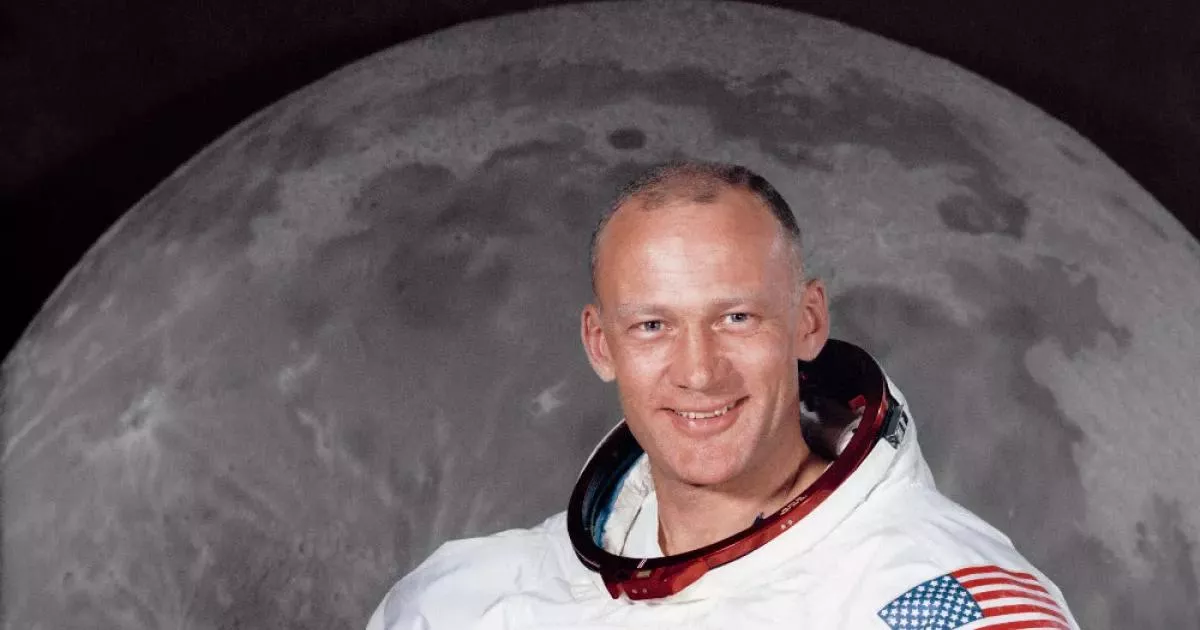A success timeline featuring the most significant achievements of Buzz Aldrin.
Buzz Aldrin is an American former astronaut, engineer, and fighter pilot, best known as the second person to walk on the Moon during the Apollo 11 mission in 1969. As the Lunar Module Eagle pilot, he followed commander Neil Armstrong onto the lunar surface. Prior to Apollo 11, Aldrin piloted the Gemini 12 mission in 1966, during which he performed three spacewalks. With the passing of Neil Armstrong and Michael Collins, Aldrin is the last surviving member of the Apollo 11 crew. His contributions to space exploration have cemented his place as a pivotal figure in scientific and historical achievements.
May 14, 1953: First MiG-15 shot down
On May 14, 1953, Aldrin shot down his first MiG-15 fighter while flying south of the Yalu River during the Korean War.
June 4, 1953: Second aerial victory
On June 4, 1953, Aldrin achieved his second aerial victory by shooting down a MiG fighter during an attack on an airbase in North Korea.
June 8, 1953: Life Magazine featured Aldrin's gun camera footage
On June 8, 1953, Life magazine featured gun camera footage taken by Aldrin of a pilot ejecting from his damaged aircraft.
October 18, 1963: Selection for NASA's Astronaut Group 3
On October 18, 1963, Aldrin was selected as one of the fourteen members of NASA's Astronaut Group 3, making him the first astronaut with a doctoral degree.
November 11, 1966: Launch of Gemini 12
On November 11, 1966, Gemini 12 was launched from Launch Complex 19 at Cape Canaveral. Aldrin helped Lovell to rendezvous manually using a sextant and rendezvous charts he helped create.
November 12, 1966: Solar eclipse viewed from Gemini 12
On November 12, 1966, Lovell and Aldrin photographed the solar eclipse over South America through the spacecraft windows during the Gemini 12 mission.
1966: NASA Exceptional Service Medal
During a 1966 ceremony marking the end of the Gemini program, Aldrin was awarded the NASA Exceptional Service Medal by President Johnson at LBJ Ranch.
1966: First space flight on Gemini 12
In 1966, Aldrin's first space flight was on Gemini 12, during which he spent over five hours on extravehicular activity.
1966: Pilot of Gemini 12 mission
In 1966, Buzz Aldrin served as the pilot of the Gemini 12 mission, during which he performed three spacewalks.
July 21, 1969: Walking on the Moon
On July 21, 1969, Aldrin set foot on the Moon at 03:15:16 UTC, nineteen minutes after Armstrong. He also held a private communion ceremony, the first food and liquid consumed there.
1969: Air Force Distinguished Service Medal Awarded
In 1969, Aldrin was awarded the Air Force Distinguished Service Medal (DSM) for his role as Lunar Module pilot on Apollo 11.
1969: Awarded the Collier Trophy and General Thomas D. White USAF Space Trophy
In 1969, Buzz Aldrin and the Apollo 11 crew were awarded the Collier Trophy. Additionally, they received the 1969 General Thomas D. White USAF Space Trophy.
1969: Presidential Medal of Freedom
In 1969, Buzz Aldrin received the Presidential Medal of Freedom.
1969: Apollo 11 mission
In 1969, Buzz Aldrin was the Lunar Module Eagle pilot on the Apollo 11 mission. He was the second person to walk on the Moon, after Neil Armstrong.
1970: NASA Distinguished Service Medal Awarded
In 1970, Aldrin was awarded the NASA Distinguished Service Medal for the Apollo 11 mission.
1970: Dr. Robert H. Goddard Memorial Trophy, Harmon Trophy, and Hubbard Medal
In 1970, Buzz Aldrin and the Apollo 11 crew received several awards, including the National Space Club's Dr. Robert H. Goddard Memorial Trophy for their spaceflight achievement. They also received the international Harmon Trophy for aviators, conferred by Vice President Spiro Agnew in 1971, and the Hubbard Medal of the National Geographic Society, also in 1970.
1971: Received the Harmon Trophy
In 1971, Vice President Spiro Agnew conferred the international Harmon Trophy for aviators to Buzz Aldrin and the Apollo 11 crew.
1972: Oak Leaf Cluster Awarded
In 1972, Aldrin was awarded an oak leaf cluster in lieu of a second DSM for his roles in the Korean War and in the space program, and the Legion of Merit for his roles in the Gemini and Apollo programs.
October 1978: Aldrin Quits Drinking for Good
In October 1978, Aldrin successfully quit drinking after struggling with alcoholism for several years. During this period, he also attempted to help others with drinking problems.
1982: Induction into International Space Hall of Fame
In 1982, Aldrin was one of ten Gemini astronauts inducted into the International Space Hall of Fame.
1993: Induction into U.S. Astronaut Hall of Fame
In 1993, Aldrin was inducted into the U.S. Astronaut Hall of Fame.
1999: Langley Gold Medal Award
In 1999, Buzz Aldrin and the Apollo 11 crew received the Smithsonian Institution's Langley Gold Medal for aviation, presented by Vice President Al Gore. Following the ceremony, the crew visited the White House and gifted President Bill Clinton with an encased Moon rock.
2000: Induction into National Aviation Hall of Fame
In 2000, Aldrin was inducted into the National Aviation Hall of Fame.
2003: Humanitarian Award from Variety, the Children's Charity
In 2003, Buzz Aldrin received the Humanitarian Award from Variety, the Children's Charity, in recognition of his understanding, empathy, and devotion to mankind.
2006: General James E. Hill Lifetime Space Achievement Award
In 2006, Buzz Aldrin was awarded the Space Foundation's highest honor, the General James E. Hill Lifetime Space Achievement Award.
2008: Induction into New Jersey Hall of Fame
In 2008, Aldrin was inducted into the New Jersey Hall of Fame.
2011: New Frontier Congressional Gold Medal
In 2011, the Apollo 11 crew, including Buzz Aldrin, was awarded the New Frontier Congressional Gold Medal in the Capitol Rotunda. NASA administrator Charles Bolden acknowledged their pioneering role in space exploration during the ceremony.
2016: Buzz Aldrin Middle School Renaming
In 2016, Buzz Aldrin's hometown middle school in Montclair, New Jersey, was renamed Buzz Aldrin Middle School in his honor.
March 2019: Lawsuit Dropped, Guardianship Petition Withdrawn
In March 2019, Buzz Aldrin dropped his lawsuit against his children and former business manager, and his children withdrew their petition for legal guardianship.
2019: Stephen Hawking Medal for Science Communication
In 2019, Buzz Aldrin was awarded the Starmus Festival's Stephen Hawking Medal for Science Communication for Lifetime Achievement.
May 5, 2023: Honorary Promotion to Brigadier General
On May 5, 2023, Buzz Aldrin received an honorary promotion to the rank of brigadier general in the United States Air Force and was made an honorary Space Force guardian.
Mentioned in this timeline

Donald John Trump is an American politician media personality and...

George W Bush the rd U S President - is...

Howard Stern is a renowned American radio personality recognized for...

Al Gore served as the th U S Vice President...
New Zealand is an island country in the southwestern Pacific...
NASA the National Aeronautics and Space Administration is an independent...
Trending
50 minutes ago Carnell Tate: Potential NFL Draft Prospect and Future 'Robin' for Giants?

51 minutes ago Matt Rife's 'Stay Golden Tour' stopped at Capital One Arena for a hilarious performance.

2 hours ago Javier Reyes: Latin leadership in education, EXATEC award, and UFC debut.
2 hours ago UN Addresses Iran Strikes: International Condemnation and Emergency Security Council Meeting.
2 hours ago Shane van Gisbergen Dominates COTA, Winning First NASCAR Road Course Race of the Season.
2 hours ago Aruba Hotel Achieves Dual Perfect Green Globe Scores, Promotes Sustainable Tourism Initiatives
Popular

Jesse Jackson is an American civil rights activist politician and...

Hillary Diane Rodham Clinton is a prominent American politician lawyer...

XXXTentacion born Jahseh Dwayne Ricardo Onfroy was a controversial yet...

Michael Joseph Jackson the King of Pop was a highly...

Kashyap Pramod Patel is an American lawyer who became the...

Barack Obama the th U S President - was the...
